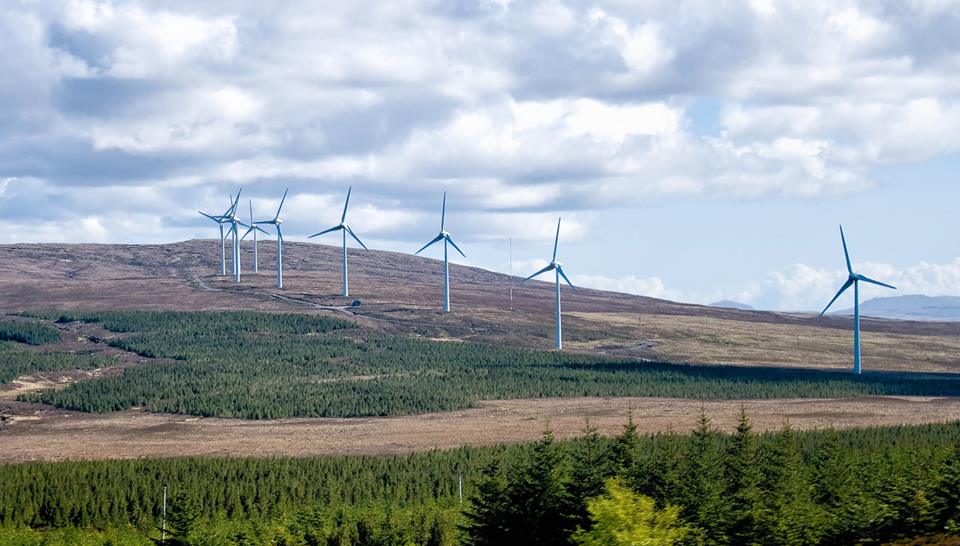Taking power: Why you should be excited about the new Green energy policy

Scottish Green Party members voted unanimously to pass policy promoting “Energy in Community and Public Hands” at the party’s annual conference last weekend.
As the seconder for the motion, I had prepared some points to say in support of it, but since nobody raised a single objection, I didn’t have to! However, reading up on community energy in preparation for conference made me realise just how key an issue this is, so I wanted to share some of the reasons that I support a swift shift to community and public ownership of energy.
Letting control of our energy generation and distribution remain with the ‘Big Six’ energy companies (and, around the world, with other multinational corporations) is keeping us locked into destructive, carbon-intensive methods of producing energy, when viable alternatives exist.
It is also keeping us locked into unfair pricing structures, aimed to generate as much profit as possible for wealthy shareholders.
Shifting control to communities, governments and workforces would allow us to focus on improving energy access for all citizens, many of whom currently can’t afford energy for their basic needs, and on shifting to more sustainable sources of energy, now.
On-shore wind is now the cheapest form of energy in the UK – cheaper than oil, gas or coal – but the vast majority of our energy still comes from fossil fuels, and the Tory Westminster government are dragging their heels, supporting the interests of their friends in the Big Six and delaying a transition to affordable, green energy. They have just proposed a major cut in support for individuals and communities generating their own clean energy.* We must oppose this incoherent policy.
In Hamburg, citizens voted in 2013 for their local council to buy back the energy grid from multinational companies, because people realised that these companies were failing to act in the best interests of local people and the environment. We could do the same in the UK.
Breaking free of the Big Six stranglehold will enable us to reduce fuel poverty. When communities and governments are in control of energy, they can create pricing structures that are much more progressive than that of the Big Six, so that people with fewer means pay less than those who can better afford it. For example, in Cuba, the government provides enough energy for people’s basic needs at a very low price, but prices increase steeply above this level, with the cost of power to run luxuries, such as air conditioning, being over 50 times higher than that of the basic allocation. Also, energy bills are normally much lower, once the community or government has covered the initial investment costs, from, for example, a wind turbine or solar panels.
When communities control their own energy, any profits raised go back into the community, or can be reinvested in other community energy projects. The new Edinburgh Community Solar Co-operative illustrates this well. They are capping returns on investment at 5%, and any additional profits raised will feed into a community benefit fund which is intended to deliver the objectives of the co-op.
Working on a project to set up renewable energy infrastructure, or establish a renewables co-op, brings communities together, builds social capital, and can create local employment opportunities.
Finally, community ownership and participation in energy projects tends to increase support for renewables more broadly, and often leads to interest in other aspects of energy, such as conservation and demand-side management. A good example of this comes from Denmark, where one-fifth of the country’s energy comes from wind power, and three-quarters of the wind turbines are now owned by co-ops, thanks to government support and tax incentives for community renewable energy. As a result, there is much more support for renewables: 90% of Danes support wind power as their favoured form of energy.
This is why I’m delighted that it is now Scottish Green Party policy to proudly support public- and community-owned energy. This will allow us to go into the Holyrood 2016 elections with a clear message that the Scottish Greens put people and planet before profit, and that we will facilitate the renewables revolution by promoting energy in community and public hands.
___
* The Conservatives’ proposals will see the standard Feed-in-Tariff (FIT) reduced from 12.47p/kWh (the rate that is due to take effect from 1 October 2015) to 1.63p/kWh from 1 January 2016. This is an 87% reduction in the rate for small installations. It is also 96% lower than the original tariff of 43p/kWh established by the previous Labour Government when the FIT scheme came into operation in April 2010.
Additional sources:
- Rays of Hope’ by Global Justice Now
- Community Power Scotland


If the Green Party are “proud to support public and community-owned energy” i.e. wind turbines, should they not be proud to support those communities and members of the public who do not want turbines near their homes, causing health problems and loss in property values. Or blighting beautiful areas, such as Glen Affric, Glen Urquhart, Ben Wyvis, Dava Moor and numerous other areas of unspoilt Scotland with massive industrial turbines which are unreliable, intermittent and require constant backup from conventional power sources.
Or is it the case that Harvie, Nutterly Binnet and the rest of the Greens’ are quite happy to have turbines cover our countryside, so long as you are NOT effected by them?